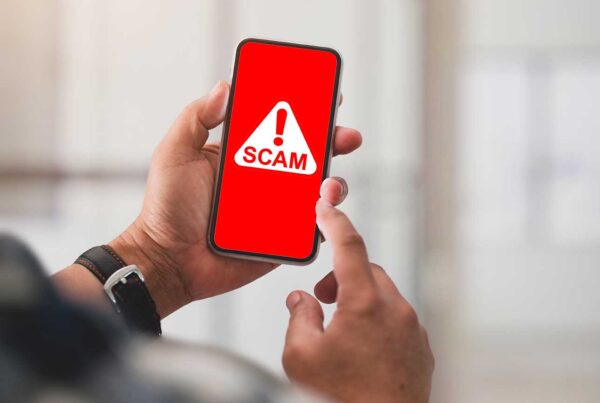Vendor Scam
A fraudster poses as a vendor that contacts your business out of the blue to gain access to sensitive financial information. Why do they do this? At a minimum, fraudsters only need two important pieces of information to gain access to your business’s bank account: your routing number and account number. Once they have that information, they will be able to utilize the Automated Clearing House (ACH) network to scam you and take money directly from your account. (Financial institutions use the ACH network to process things like your bill payments and paychecks.)
Common Scenarios
- A “vendor” contacts your business and states that your most recent invoice payment did not process even though you know you already submitted it. They’d be happy to accept your payment by phone or online on your Outstanding Invoice.
- A “vendor” mails an updated invoice to your business with changes or updates to their direct deposit information. They’ll ask you to update your ACH information to ensure your payments are submitted accurately and on time.
- A “vendor” contacts your business with changes or updates to their contact information. They’ll ask you to redirect funds to their new company name or location.
Luckily, if you can spot a scam, you can stop it. Here are the red flags to look for.
Do not respond to the communication if it contains any of these red flags:
- It is not initiated by you.
- It is unexpected.
- It is urgent.
- It triggers your emotions.
- It asks you to open a document/click on a link.
- It asks you to disclose sensitive information.
- It requests a change of payment method.
Action Steps
When you detect a red flag:
- End the interaction.
- Then, instead of the vendor reaching out to you, YOU reach out to that vendor using a communication channel that you already know and trust. Always verify a change of payment method.
Check Fraud
Due to an increase in check fraud, it is important to be aware of the risks of sending business checks by mail. When sent by mail—from your mailbox, the street corner mailbox, or even the local post office—checks can be stolen, washed, altered, and then deposited somewhere other than their intended location. This specific type of fraud is called check washing. The stolen check is “washed,” oftentimes with common household chemicals to remove the ink. The scammer can then change the check’s payee and amount and deposit it.
Action Steps
If you think your business’s money or financial information has been compromised, report the incident to local law enforcement and contact your financial institution immediately. If you’re a member at Verve, call us at 800.448.9228 and one of our team members can review your account to check for suspicious transactions, freeze your account if it has been compromised, and guide you on how to better safeguard your finances against fraud.





 Federally Insured by NCUA |
Federally Insured by NCUA |  Equal Housing Opportunity |
Equal Housing Opportunity |